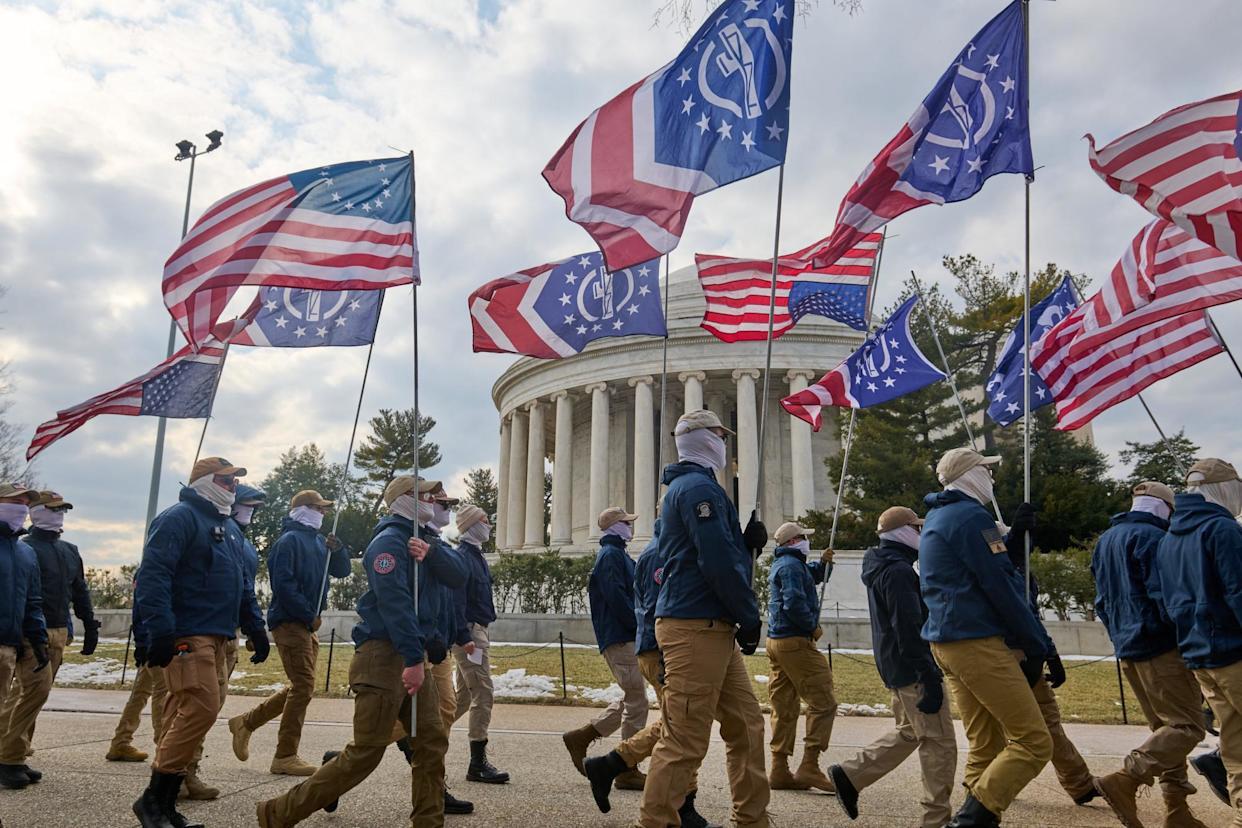
Trump's counter-terror cuts will harm fight against far right, experts warn
Bubbles
March 30, 2025
Donald Trump’s administration has halted funding for a range of counter-terrorism research projects, a decision that experts warn will impair law enforcement's ability to predict and prevent future attacks, particularly those originating from the far right.
The cuts impact multiple agencies and departments. They follow Trump's decision to issue “unconditional” pardons to roughly 1,500 individuals involved in the January 6 Capitol attacks and the appointment of his staunch ally Kash Patel to lead the FBI. As a result, the National Institute of Justice has canceled its research aimed at enhancing understanding of radicalization toward violent extremism in local communities. Similarly, the Department of Defense, which recently scrapped its social sciences-focused Minerva program, has eliminated $30 million in annual funding for academic studies on extremism, disinformation, and related topics.
Last week, the University of Maryland announced that its valuable dataset—tracking hate crimes, antisemitism, domestic terrorist attacks, and school shootings—had also been defunded by the Department of Homeland Security. The broader academic community focused on counter-terrorism and national security has reacted with shock at the magnitude of these cuts, suggesting that this overhaul of counter-terrorism strategies may ultimately undermine Trump’s own promises to curb domestic terrorism.
John Horgan, a professor at Georgia State University with previous experience working with DHS, lamented on LinkedIn, “NIJ, Minerva, and now DHS. Terrorism research portfolios gone—just wiped out.” He went on to add that years of progress, partnerships, and actionable research to improve community safety have been thrown away.
A DHS social scientist at the Science and Technology directorate expressed his condolences over the loss of research benefits that had significantly advanced the government's understanding of human behavior in relation to terrorism and targeted violence. He referred those seeking further details to his agency’s media department, which has not responded to multiple requests for comment.
Michael Jensen, research director at the National Consortium for the Study of Terrorism and Responses to Terrorism (Start), which managed the University of Maryland dataset, issued a statement criticizing the DHS defunding. “Our project was just one of many terrorism and targeted violence research grants terminated by DHS,” Jensen said. “The cancellations will have a lasting impact on the terrorism research field, the development of future homeland security professionals, and ultimately, public safety.”
Heidi Beirich, co-founder of the Global Project Against Hate and Extremism, warned that without this critical research, the full scope of domestic terrorism—including emerging far-right threats—will remain unknown, leaving a significant gap in the knowledge base that recent work sought to address.
The shift in funding priorities coincides with a notable pivot in on-the-ground policing strategies since Trump’s return to the White House. Several sources familiar with FBI investigations indicate that the agency is reassigning agents to focus on Latin American street gangs, border taskforces, and left-wing radical groups rather than far-right extremists. Critics have condemned this reallocation of resources as a “disgrace,” arguing that neglecting far-right terrorism will have dire consequences.
Adam Hadley, founder and executive director of Tech Against Terrorism, expressed mixed concerns about the broader reduction in counter-terrorism research funding. He warned that cuts could have dangerous effects at a time when major tech companies are scaling back efforts to moderate extremist content, effectively becoming major conduits for terrorist material online. Hadley highlighted that these platforms have done little more than the bare minimum to remove content from groups like ISIS, al-Qaida, Hamas, Hezbollah, the Houthis, and violent neo-Nazis, which could further facilitate radicalization among young people.
As the funding cuts take effect, experts and critics alike warn that the consequences will be felt for years, potentially eroding critical research capacities that have helped inform public safety measures and counter-terrorism strategies.
Comments
You need to be logged in to comment
No comments yet. Be the first to comment!
Need a website?
Then contact us for professional web development services.
Table of Contents
Share this article
More from the blog

Microsoft’s August 2025 Windows Update Is Breaking Streaming and Raising SSD Fears
Meta Description: Microsoft’s August 2025 Windows update (KB5063878 / KB5063709) is causing major problems for streamers and sparking SSD concerns. Here’s what went wrong, Microsoft’s slow response, an...

Microsoft Zero-Day Bug Exploit: How It Happened and What You Need to Do
Imagine waking up to the news that hackers have a secret key to your company’s data. That’s exactly what happened in July 2025 when a zero-day bug in Microsoft SharePoint was discovered to be under act...

Dembele, Yamal or Salah? Breaking Down the Bookies’ Picks for Ballon d’Or 2025
The Ballon d’Or trophy stands as the pinnacle of individual achievement in football – the gleaming prize that will be awarded on September 22, 2025. After a season of drama (Paris Saint-Germain clinch...